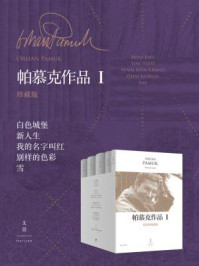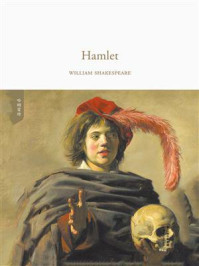




In the month of June, on Vesta's holiday, the very numerical day on which Brutus, conquering Spain, taught its strutting dons to truckle under him,and that niggardly miser Crassus was routed and knocked on the head by the Parthians, Pantagruel took his leave of the good Gargantua, his royal father. The old gentleman, according to the laudable custom of the primitive Christians, devoutly prayed for the happy voyage of his son and his whole company, and then they took shipping at the port of Thalassa. Pantagruel had with him Panurge, Friar John des entomeures,alias of the Funnels, epistemon, Gymnast, eusthenes,Rhizotome, Carpalin, cum multis aliis, his ancient servants and domestics; also Xenomanes, the great traveller, who had crossed so many dangerous roads,dikes, ponds, seas, and so forth, and was come some time before, having been sent for by Panurge.
For certain good causes and considerations him thereunto moving, he had left with Gargantua, and marked out, in his great and universal hydrographical chart, the course which they were to steer to visit the oracle of the holy Bottle Bacbuc. The number of ships were such as I described in the third book,convoyed by a like number of triremes, men of war,galleons, and feluccas, well-rigged, caulked, and stored with a good quantity of Pantagruelion.
All the officers, droggermen, pilots, captains, mates,boatswains, midshipmen, quartermasters, and sailors,met in the Thalamege, Pantagruel's principal flagship, which had in her stern for her ensign a huge large bottle, half silver well polished, the other half gold enamelled with carnation; whereby it was easy to guess that white and red were the colours of the noble travellers, and that they went for the word of the Bottle.
on the stern of the second was a lantern like those of the ancients, industriously made with diaphanous stone, implying that they were to pass by Lanternland.The third ship had for her device a fine deep china ewer. The fourth, a double-handed jar of gold, much like an ancient urn. The fifth, a famous can made of sperm of emerald. The sixth, a monk's mumping bottle made of the four metals together. The seventh,an ebony funnel, all embossed and wrought with gold after the Tauchic manner. The eighth, an ivy goblet,very precious, inlaid with gold. The ninth, a cup of fine obriz gold. The tenth, a tumbler of aromatic agoloch (you call it lignum aloes) edged with Cyprian gold, after the Azemine make. The eleventh, a golden vine-tub of mosaic work. The twelfth, a runlet of unpolished gold, covered with a small vine of large Indian pearl of Topiarian work. Insomuch that there was not a man, however in the dumps, musty, sourlooked, or melancholic he were, not even excepting that blubbering whiner heraclitus, had he been there, but seeing this noble convoy of ships and their devices, must have been seized with present gladness of heart, and, smiling at the conceit, have said that the travellers were all honest topers, true pitcher-men, and have judged by a most sure prognostication that their voyage, both outward and homeward-bound, would be performed in mirth and perfect health.
In the Thalamege, where was the general meeting, Pantagruel made a short but sweet exhortation,wholly backed with authorities from Scripture upon navigation; which being ended, with an audible voice prayers were said in the presence and hearing of all the burghers of Thalassa, who had flocked to the mole to see them take shipping. After the prayers was melodiously sung a psalm of the holy King David,which begins, When Israel went out of egypt; and that being ended, tables were placed upon deck, and a feast speedily served up. The Thalassians, who had also borne a chorus in the psalm, caused store of belly-timber to be brought out of their houses. All drank to them; they drank to all; which was the cause that none of the whole company gave up what they had eaten, nor were sea-sick, with a pain at the head and stomach; which inconveniency they could not so easily have prevented by drinking, for some time before, salt water, either alone or mixed with wine;using quinces, citron peel, juice of pomegranates,sourish sweetmeats, fasting a long time, covering their stomachs with paper, or following such other idle remedies as foolish physicians prescribe to those that go to sea.
having often renewed their tipplings, each mother's son retired on board his own ship, and set sail all so fast with a merry gale at south-east; to which point of the compass the chief pilot, James Brayer by name,had shaped his course, and fixed all things accordingly.For seeing that the oracle of the holy Bottle lay near Cathay, in the Upper India, his advice, and that of Xenomanes also, was not to steer the course which the Portuguese use, while sailing through the torrid zone, and Cape Bona Speranza, at the south point of Africa, beyond the equinoctial line, and losing sight of the northern pole, their guide, they make a prodigious long voyage; but rather to keep as near the parallel of the said India as possible, and to tack to the westward of the said pole, so that winding under the north, they might find themselves in the latitude of the port of olone, without coming nearer it for fear of being shut up in the frozen sea; whereas, following this canonical turn, by the said parallel, they must have that on the right to the eastward, which at their departure was on their left.
This proved a much shorter cut; for without shipwreck,danger, or loss of men, with uninterrupted good weather, except one day near the island of the Macreons, they performed in less than four months the voyage of Upper India, which the Portuguese,with a thousand inconveniences and innumerable dangers, can hardly complete in three years. And it is my opinion, with submission to better judgments,that this course was perhaps steered by those Indians who sailed to Germany, and were honourably received by the King of the Swedes, while Quintus Metellus Celer was proconsul of the Gauls; as Cornelius Nepos,Pomponius Mela, and Pliny after them tell us.


